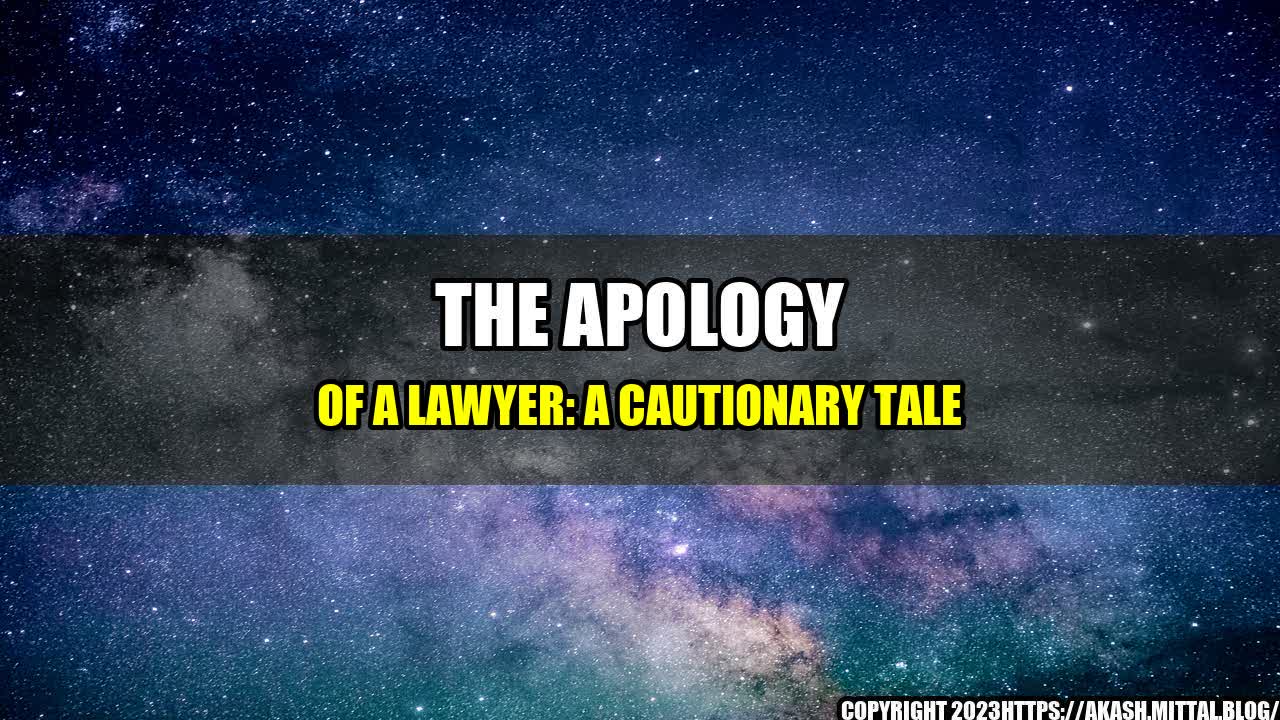
On a bright summer day, a young lawyer enthusiastically walked into the courthouse to argue his first case. He was confident, prepared, and eager to make a name for himself. Little did he know, that day would mark the beginning of a downward spiral that would not only tarnish his reputation but also would leave a permanent stain on the legal profession.
The lawyer, whose identity was never publicly disclosed, started to fabricate court citations to bolster his arguments in various cases. He thought that using citations from fictitious cases would make him appear more knowledgeable and impressive in front of his clients and the judges. He thought that no one would notice his little deception and that it would be his little secret.
But like any lie, it eventually caught up with him. His colleagues noticed inconsistencies in his arguments, and the judges became suspicious of the citations he used in his briefs. One day, after a particularly egregious instance of citation falsification, the lawyer was called to the disciplinary committee of the bar association.
It was a moment of reckoning for him. He realized the gravity of his mistake and the impact it had on the legal profession's credibility. He had violated the ethical rules governing lawyers, and the trust his clients and colleagues had placed in him was shattered.
After a long and painful process, the lawyer finally apologized for his actions. He recognized his mistake and promised to never repeat it. He hoped that his apology would serve as a cautionary tale for other young lawyers who might be tempted to take shortcuts to success.
This story might seem like an isolated case, but sadly, it's not. Cases of legal professionals fabricating evidence or citations to bolster their arguments have become increasingly common. A study by the National Law Journal found that at least 100 cases of lawyer misconduct involving faked or plagiarized material have been reported in the U.S. since 2010.
The cost of such deception is staggering. It undermines the very foundation of the legal system, which is built on the principle of truthful representation, honesty, and fairness. It erodes the public's faith in the legal profession and the judiciary, making it harder for lawyers to do their jobs and for the justice system to function properly.
Moreover, such misconduct can have dire consequences for clients. A lawyer who fabricates evidence or citations can put their case at risk of dismissal or adverse judgment. They can also face legal consequences, such as disbarment, fines, or imprisonment, depending on the severity of the offense.
Lastly, it can have a personal cost for the lawyer in question. The shame, guilt, and damage to their reputation can haunt them for years, if not for their whole career. It can also affect their mental health, leading to depression, anxiety, or other psychological issues.
At the core of the legal profession is the commitment to ethical conduct. Lawyers have a duty to uphold the law, respect the rights and dignity of their clients, and maintain the highest standards of conduct in their practice. This duty extends not only to their clients but also to the wider society and the legal system as a whole.
Legal ethics is not a mere academic exercise but a practical necessity. It helps lawyers navigate complex legal issues, establish trust with their clients and colleagues, and build a positive reputation in the legal community. It also serves as a bulwark against misconduct, safeguarding the integrity and legitimacy of the legal system.
Law schools and bar associations play a vital role in promoting ethical legal practice. They provide education, training, and resources to lawyers to help them understand and comply with the ethical rules and principles. They also enforce disciplinary actions against lawyers who violate these rules, ensuring accountability and deterrence.
This story highlights the importance of legal ethics and the consequences of violating it. Aspiring lawyers should heed the following lessons:
By following these lessons, aspiring lawyers can avoid the pitfalls of deception and unethical conduct, and build a successful and fulfilling legal career.
The apology of the lawyer who falsified court citations is a cautionary tale about the importance of legal ethics and the consequences of violating it. It underscores the need for aspiring lawyers to abide by the highest standards of conduct in their practice and serve the best interests of their clients and the legal system.
Legal ethics is not a theoretical concept but a practical necessity. It ensures the credibility, legitimacy, and fairness of the legal system, and upholds the public's trust in the legal profession. Aspiring lawyers should heed the lessons learned from this story and strive to maintain the highest ethical standards in their practice.
References:
Curated by Team Akash.Mittal.Blog
Share on Twitter Share on LinkedIn